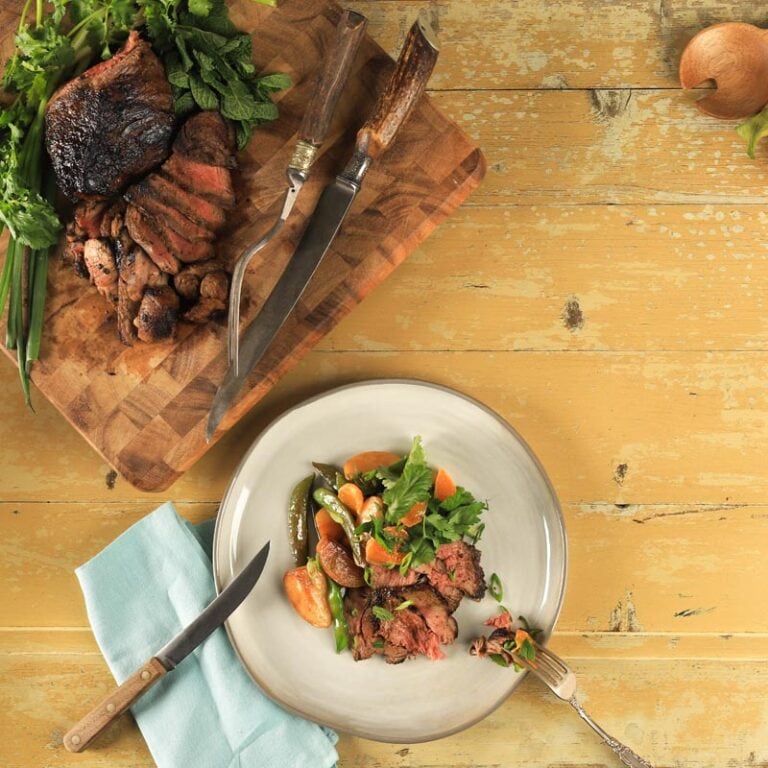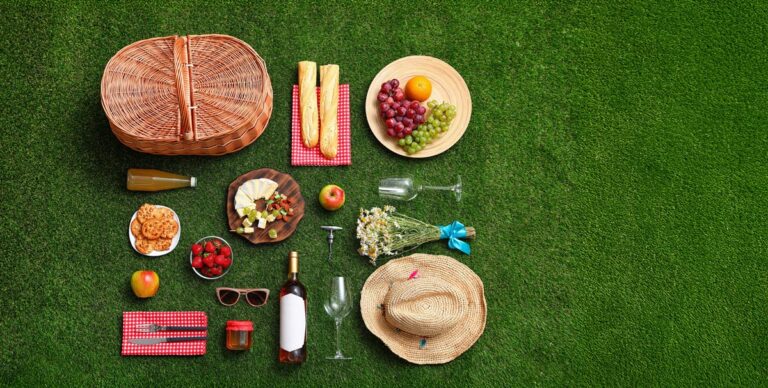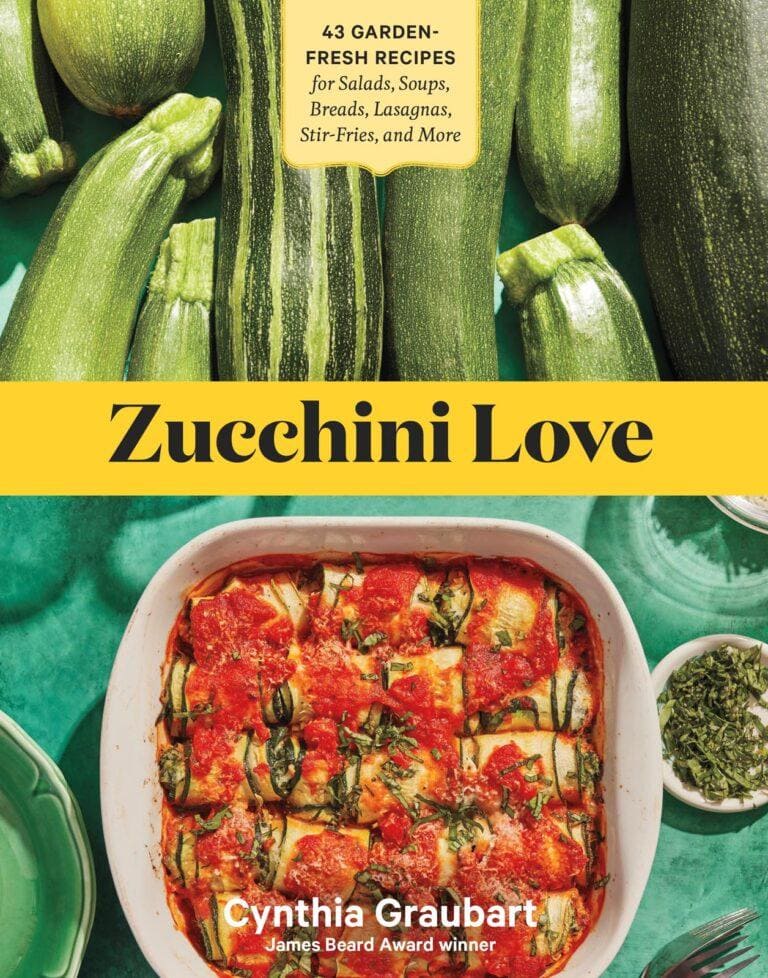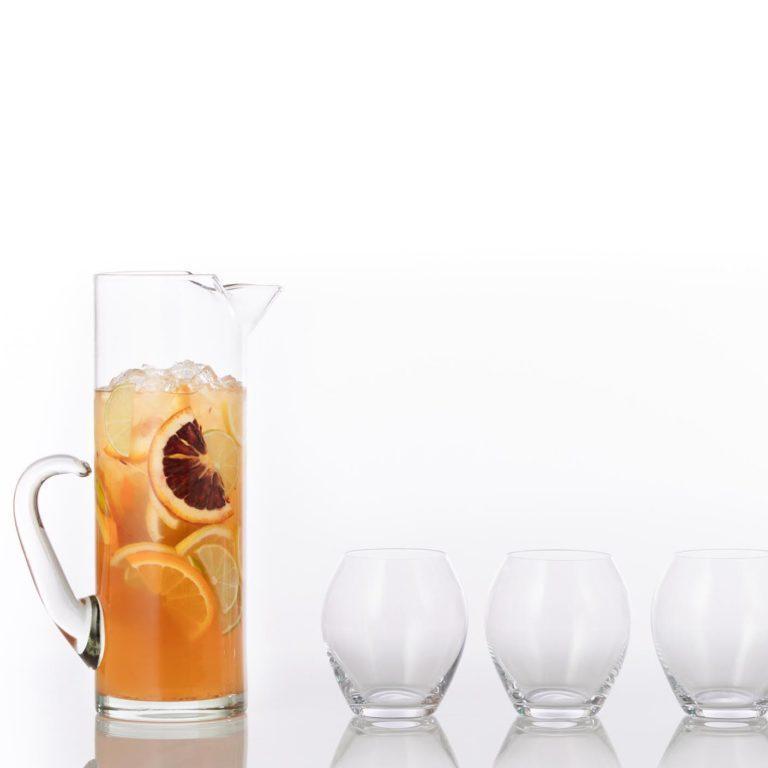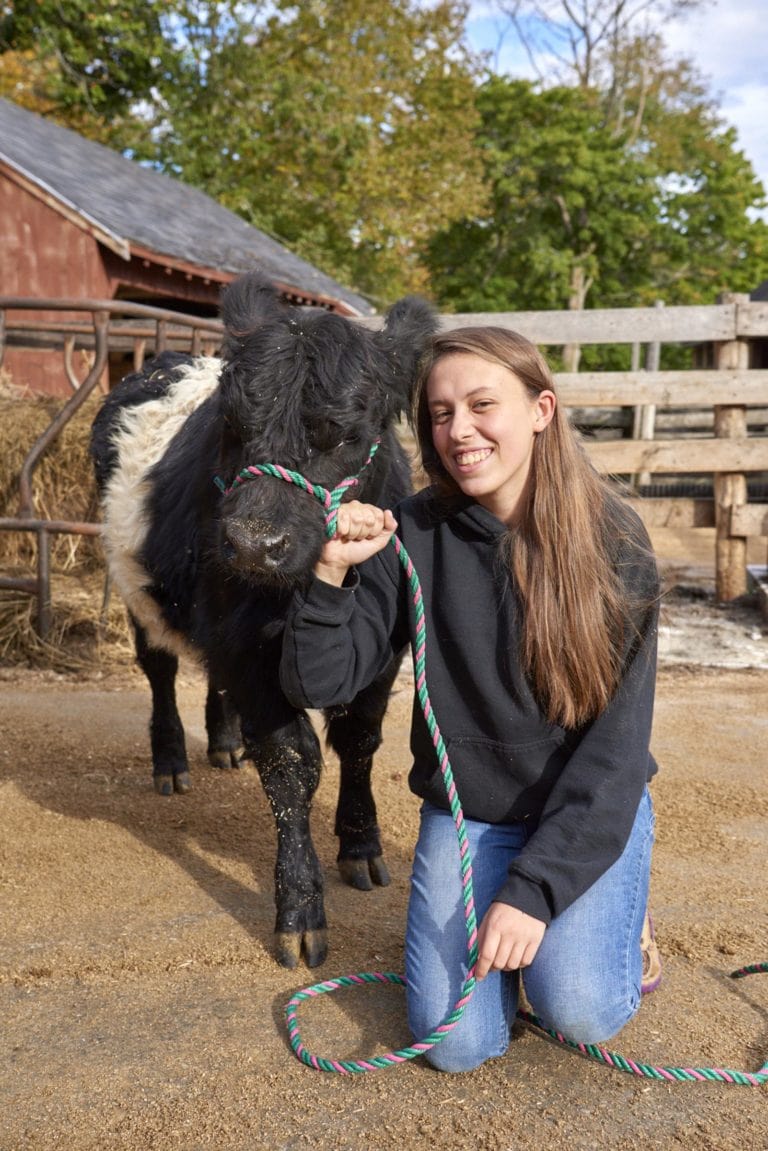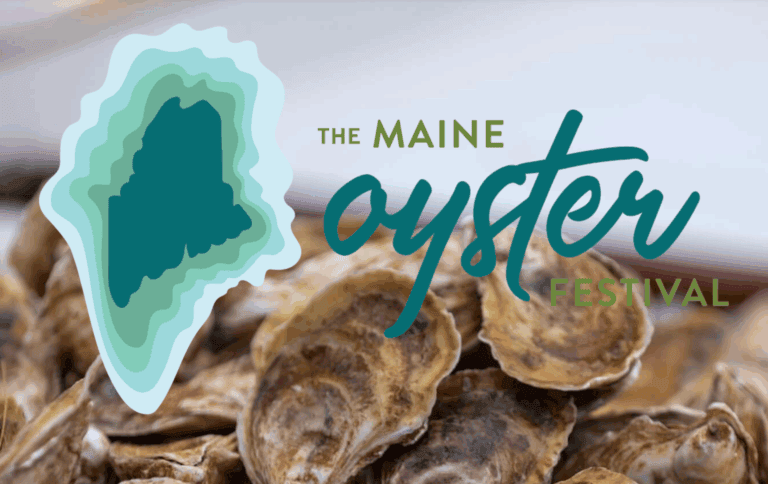Kate Hall likes to get her hands dirty—both literally and figuratively. On any given day you will find her wearing all the hats of her thriving juice and microgreens business, Graze, in Northport, Maine. She manages everything, from production and operations to connecting with customers when selling at her local farmers market. When she’s not building a fast-growing juice company, you might find her in the garden, hands in the dirt.
“Being in the garden, weeding, it helps me connect with the earth. It’s just good for my body.” Her Zen-like composure makes it hard to believe that she was living in the fast lane not so long ago.
A Camden native, Hall’s “big city in a small town” dreams took her to New York City after she graduated from high school. She studied fashion design at the Fashion Institute of Technology, and went on to do textile research and development for companies like Gap and J. Crew.
“It was amazing,” she says, “but it was very fast paced. Like, 60-hour workweeks. It became all I knew.” She had plans and investors to start her own company, but the market crash in 2008 forced her to pivot. After 10 years of uber-busy city life, she found herself back in Maine, weeding her parents’ quiet back garden.
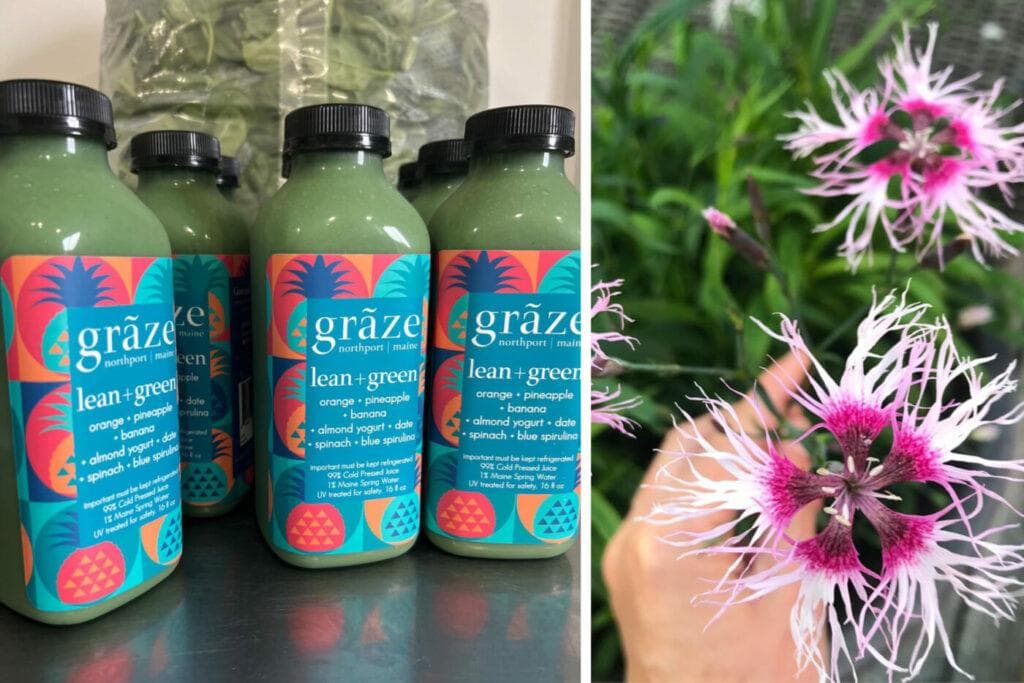
Hall fully embraced the sudden lifestyle change. “I bought myself a Carhartt vest and some Muck boots.”
She recalls visiting the annual Common Ground Country Fair and being introduced to the world of farming and agriculture. “I was in awe. It was entirely the opposite of what I had known in the fashion world, which was basically consumerism and glossy magazines.”
She and her then-husband bought a small farm, welcoming a baby boy shortly after. Life seemed happy.
In 2016, everything crashed down. She found herself facing divorce while trying to handle a 2-year-old, financial instability, and an undiagnosed autoimmune disease. She was on the brink of losing everything. To add to the heartache, Hall discovered her best friend was moving to California—but offered her a parting gift: “She had a microgreens business, and asked if I wanted to take it over.”
Hall had little to lean on for income, a son to take care of, and a sick body she desperately needed to heal. Microgreens were something she could manage at home alongside motherhood and healing. Why not?
With support from her family, Hall set up shop in her basement, using bakers racks and a few makeshift grow lights. It wasn’t expensive or pretty, but it worked. There was a significant learning curve after her first few grows didn’t pan out. She powered through the fear, anxiety, and sleepless nights that naturally pair with a toddler and a new business. Within a few months, her plants started to yield more and more. It was enough for her to begin building a client list of restaurants in the Midcoast area, notably The Lost Kitchen, Suzuki’s Sushi, and The Hichborn.
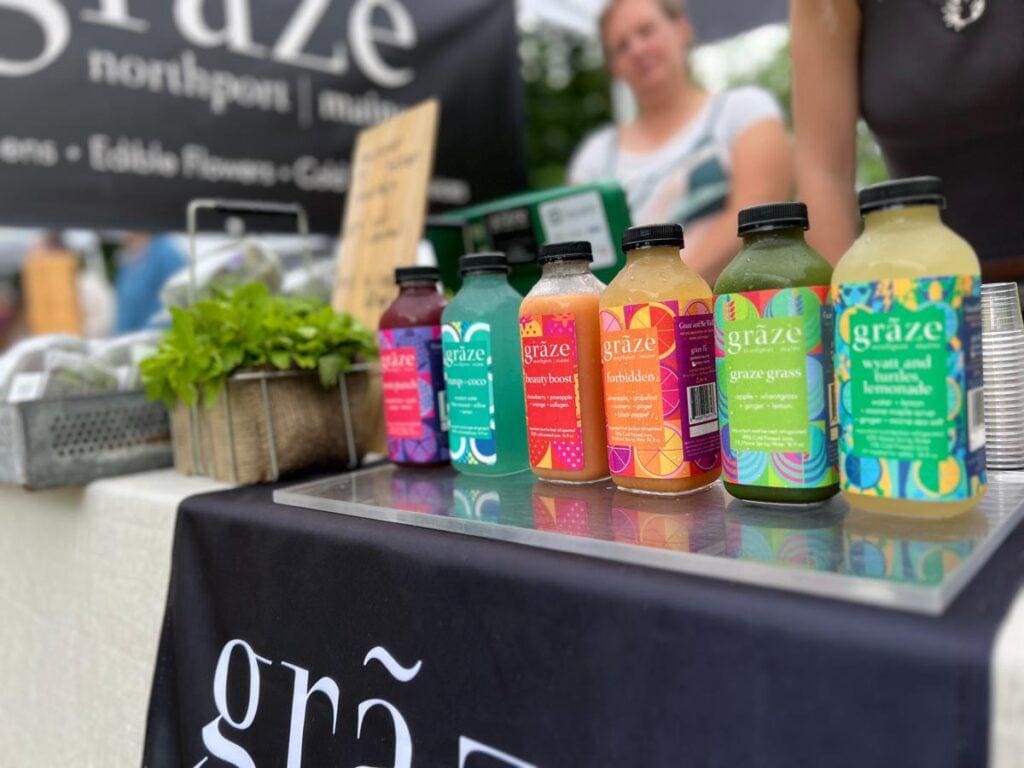
She kept the momentum going by putting down a deposit as a vendor at the Belfast Farmers’ Market in 2017, offering bagged microgreens and shots of wheatgrass juice. The greens were a favorite of customers—the wheatgrass, not so much. “It was a hard sell. It doesn’t taste great, you know? It’s grass!”
Still, she was determined to show her community the health benefits and got creative. “I started offering fresh juice blends, mixing the wheatgrass with apple and lemon juice. People loved it!”
As Graze continued to grow, Hall’s health drastically improved through daily greens, juicing, and the healthy lifestyle she had adapted. Customers and clients became friends and mentors. Her juices gained traction, and she expanded her offerings, coming up with creative and thoroughly researched combinations. “Graze not only saved my life, it gave us our happiness back and a shit-ton of reasons to keep going.”
As success grew, Hall doubled down and opened a storefront in Belfast in 2019, but she was forced to close her doors in the spring of 2020 when COVID-19 hit. Determined to continue getting her products into customers’ hands, she shifted to bottling her juices and began selling them wholesale in 2021.
While Hall knew the nourishing qualities of her products—raw, fresh, and unpasteurized juices—the USDA had concerns. To Hall, unpasteurized meant preserving all of the vital nutrients and vitamins that provide nourishment. To the USDA, unpasteurized meant potential pathogens and health hazards. By the time her juices were in 35 locations along the Midcoast and Southern Maine, a USDA inspector challenged the safety of her products, threatening to shut down her whole operation.
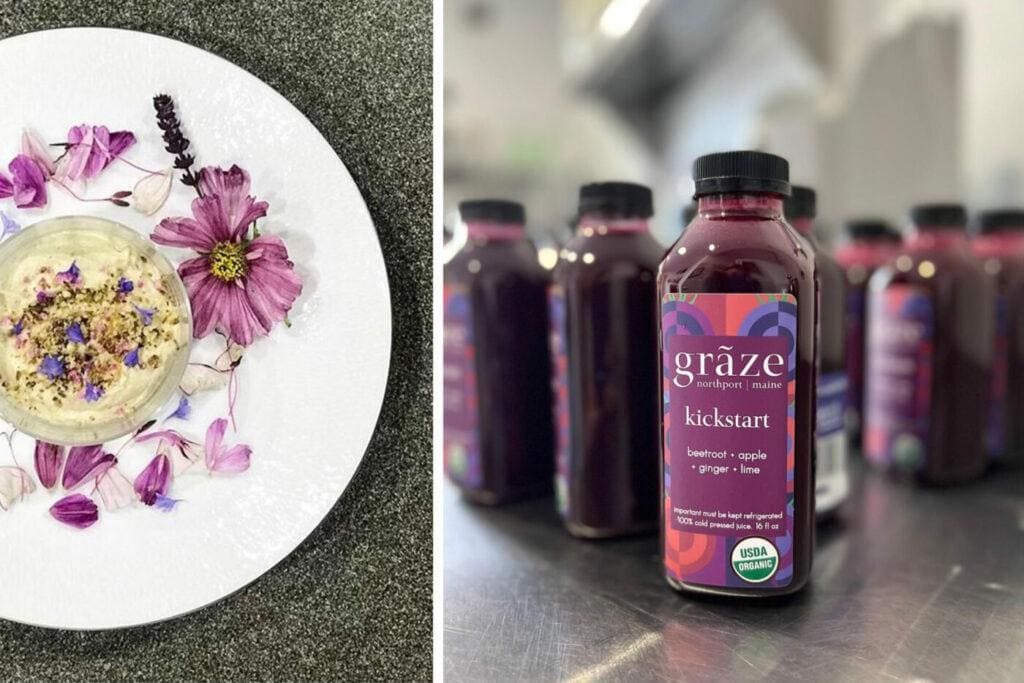
Instead of getting discouraged, she did what she always did: got creative. With outside help and a lot of testing, Hall was able to build her own device for pasteurizing her juice using ultraviolet light. Her juice is now at USDA standards, and she still is not compromising the essential nutrients that make her products so unique.
What’s next for 2024? Hall’s vision is to keep expanding her Graze juices. She also wants to teach classes about health and lifestyle, and be a strong support system for people in her expanding community.
When asked what she considers her biggest turning point, she smiles. “It’s all about the tiny, everyday wins. We find wins in everything.”







